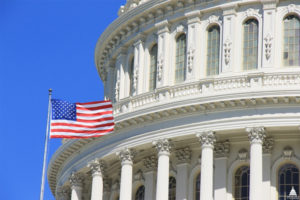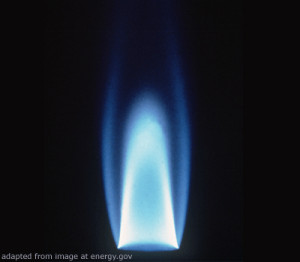Clock Ticking In Congress As Russia Presses Ahead With Nord Stream 2 Gas Pipeline

(Article text ©2019 RFE/RL, Inc., Radio Free Europe/Radio Liberty – rferl.org – Todd Prince – Nov. 18, 2019 – article text also appeared at rferl.org/a/clock-ticking-in-congress-as-russia-presses-ahead-with-nord-stream-2-gas-pipeline/30278828.html)
As the impeachment inquiry hogs the spotlight in Washington, another drama in which Ukraine has a role is playing out more quietly — and causing concern in Kyiv, which is watching warily as Russia brings its Nord Stream 2 pipeline closer to completion.
 Members of the U.S. Congress appear unified on the need to stop Russian President Vladimir Putin’s $11 billion project to deliver natural gas to Europe via a new pipeline beneath the Baltic Sea.
Members of the U.S. Congress appear unified on the need to stop Russian President Vladimir Putin’s $11 billion project to deliver natural gas to Europe via a new pipeline beneath the Baltic Sea.
Bills that would impose sanctions on companies involved in Nord Stream 2 sailed through committees in the House of Representatives and the Senate last summer with overwhelming backing from both Democrats and Republicans.
Yet as Russia forges ahead with the pipeline’s construction, little progress appears to have been made toward passage of Nord Stream 2 sanctions legislation by either chamber of Congress.
That is causing jitters in Kyiv, because completion of the pipeline from the eastern shore of the Baltic in Russia to Germany would enable Russia to reroute gas headed for Europe around Ukraine, eliminating billions of dollars in transit fees for Kyiv. It’s also raising alarm among U.S. officials who say it would strengthen, enrich, and embolden Russia.
Senator Ted Cruz (Republican-Texas), who is among the more outspoken critics of Nord Stream 2, has said it will bolster Moscow’s clout over the energy industry in Europe and put cash in the Kremlin’s coffers, increasing the risk of military adventurism on Russia’s part five years after it occupied Crimea and helped separatists seize part of eastern Ukraine.
More than 13,000 people have been killed and cash-strapped Ukraine continues to battle the Russia-backed separatists in the region known as the Donbas, which Senator Ron Johnson (Republican-Wisconsin) has called “ground zero” in the standoff between the Kremlin and Washington.
Some U.S. lawmakers and Ukrainian officials are worried that Congress, with much of its attention focused on impeachment inquiry, will not come to an agreement on sanctions legislation before the completion of the pipeline project, which is expected early in 2020.
“Time is running out to stop Nord Stream 2,” Cruz said in a statement to RFE/RL in October. “In a few short months, Russia will have completed its natural gas pipeline – putting President [Vladimir] Putin in a position to further expand his military, exploit our European allies, and threaten U.S. energy security.”
Doubling Germany’s Imports
In the future, Nord Stream 2 could potentially double the amount of Russian gas imported by Germany, the European Union’s largest economy.
The 1,230-kilometer-long pipeline — which is owned by Nord Stream 2 AG, a wholly-owned subsidiary of Russia’s Gapzrom — is more than 80 percent completed. In October, after substantial deliberation, Denmark granted the company permission to lay part of the pipeline through its waters — the last remaining regulatory hurdle to its completion.
In July, the Senate Foreign Relations Committee backed a bill co-sponsored by Cruz and Senator Jeanne Shaheen (Democrat-New Hampshire) to impose sanctions on vessels that help lay the pipeline.
Only a few companies in the world possess the technology to lay deep-sea pipelines and none of them is Russian, giving the bill its power to stop the project, Cruz said in September.
The committee’s vote to approve the bill was 20-2, underscoring the overwhelming and bipartisan support for sanctions against the project in the Senate. The House Foreign Affairs Committee had passed a companion bill in June.
But they have yet to come to a floor vote in either chamber.
Members of Ukraine’s parliament have sent several letters to top congressional leaders including House Speaker Nancy Pelosi (Democrat-California) and Bob Menendez of New Jersey, the leading Democrat on the Foreign Relations Committee in the Republican-led Senate.
When asked at the end of October where he stood on the Nord Stream 2 sanctions bill, Chuck Schumer, the top Democrat in the Senate, told RFE/RL his party wanted legislation that imposes more penalties on the Kremlin. “Democrats are pushing for the toughest Russia sanctions bill possible that also addresses continued efforts by Putin and other foreign governments to interfere in U.S. elections and Russia’s illegal occupation of Crimea,” he said.
Schumer did not state what additional measures he wanted, but several bills floating around Congress include measures to impose sanctions on more people considered close to Putin as well as Russian banks and Russian liquefied natural gas (LNG) projects.
“I am extremely afraid of this option of a wider sanctions bill,” Oleksandr Kharchenko, a Kyiv-based energy consultant to the Ukrainian government who traveled to Washington last month to lobby for the bill, told RFE/RL. “We need the sanctions bill today, not in a few months, after it is completed.”
Meanwhile, Russia has been lobbying lawmakers to stop new sanctions, including those aimed at the pipeline. Nord Stream 2 AG contends that the pipeline is needed to offset declining European natural-gas production.
However, Kharchenko said Ukraine’s gas-transportation system had more free capacity than the entire Nord Stream 2 project.
Impeachment Inquiry
Any bill that passes Congress would need Trump’s signature to become law.
The Republican president said in June that he would consider imposing sanctions targeting Nord Stream 2, adding that Germany should instead buy U.S. LNG.
Trump has shown reluctance in the past to impose additional sanctions on Russia, but the effort to put broader measures in place along with those targeting Nord Stream 2 comes at a tricky time for the president in terms of policy involving Ukraine and Russia, and he may feel pressure to show support for Kyiv.
Democrats, who hold a majority in the House, are leading an impeachment inquiry that focuses on whether Trump withheld military assistance to Ukraine in order to pressure the government of Ukrainian President Volodymyr Zelenskiy to conduct investigations potentially targeting U.S. Democrats and in particular former Vice President Joe Biden, a front-runner for the party’s nomination to challenge Trump for the presidency in November 2020.
In August, outgoing Ukrainian parliament speaker Andriy Parubiy in August addressed a letter to Pelosi asking her to bring the Nord Stream 2 bill to the floor.
“The parliament of Ukraine, representing the people of Ukraine, respectfully ask you to prioritize this legislation and allow the full House to vote,” the letter stated.
Representative Marcy Kaptur (Democrat-Ohio), co-chair of the House’s Ukraine Caucus, told RFE/RL that she would like to see broader sanctions against Russia, but said that it is “vital that Congress act quickly to prevent the imminent completion of the pipeline.”
Two people familiar with the discussions said that if Congress did not expect to agree on new legislation imposing broader sanctions on Russia by the end of the year, it could include the Nord Stream 2 bill into the National Defense Authorization Act (NDAA).
The two people asked not to be named as they said it could hurt their relations with lawmakers.
While the NDAA specifies the annual budget and expenditures of the U.S. Defense Department, legislators often attach nondefense bills to it because it is almost certain to be passed before the end of the year.
John Herbst, a former U.S. ambassador to Ukraine who heads the Eurasia Center at the Atlantic Council, a Washington-based think tank, said it would be a “shame” if delays related to negotiations on a larger sanctions bill result in Nord Stream 2 being completed.
